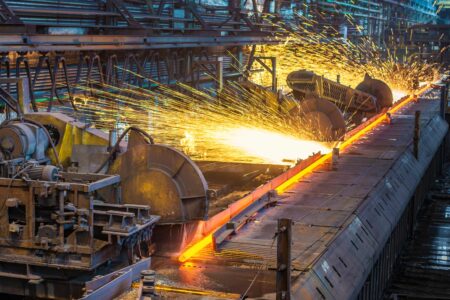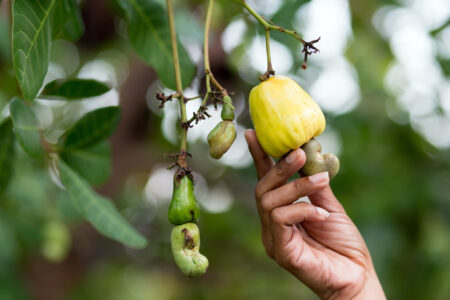As the World shakes off the effects of Covid-19, the global energy sector has a long way to go to recover, but the baby steps have begun.
In his remarks at the 20th Meeting of the Joint Ministerial Monitoring Committee (JMMC), mid last month, the OPEC Secretary General, Mohammad Sanusi Barkindo, underscored the devastating impact of the Covid-19 pandemic and what he described as ‘…its complete disruption of daily life.’
“These monthly meetings of both the JTC and the JMMC send a reassuring message that we are ready, willing and able to address shifting market conditions”, he said during the video conference.
The SG maintained that ‘…the historic actions taken by OPEC and its partners in the DoC have contributed to an improved balance in the oil market compared to the situation in April, however, the JTC and JMMC must remain vigilant in monitoring market conditions.”
While the global agency works to stabilize the world market, Africa is taking steps of its own to secure and develop its energy sector. With oil and natural gas reserves been discovered across the continent, Africa has huge potential to develop itself as a formidable powerhouse.
However, the biggest deterrent to the development of Africa’s energy sector is finance, the lack of finance for local content development greatly affects investment in the sector. There is need for the financial sector to step up and bridge the funding gap.
For this to work successfully, you need platforms like the African Energy Chamber, an entity that works to bridge with indigenous companies with international companies allowing development of the much needed synergy.
The African Energy Chamber, works as a mediator between state bodies and oil sector actor to promote local content. It also plays a vital part in networking oil companies with financial institutions and the public sector bodies across sub-Saharan Africa.
In this regard, Chairman the African Energy Chamber, Mr. NJ Ayuk has recently announced plans to broadening its scope to South Sudan, Nigeria and Gabon, this been in addition to Equatorial Guinea and Angola.
“The African Energy Chamber brings willing governments and credible businesses together to continue growth of the African energy sector under international standard business practices,’ explains the chamber’s management.
Notably, in East Africa Uganda has proven crude oil reserves of 6.5 billion barrels, about and according to the International Monetary Fund this makes it the fourth-largest in sub-Saharan Africa, behind Nigeria, Angola, and South Sudan.
Some of the largest oil fields are in the Kaiso-Tonya area in Hoima District and this is where Uganda is working to build an oil refinery. The USD4 billion refinery is been undertaken by a consortium of players led by US General Electric and Jk Minerals Africa of South Africa. When completed, they will own 50 and 10 percent respectively, while the government of Uganda and other investors take up the remaining 40 percent.
Similarly, across the continent you have what is expected to become Afrioca’s largest oil refinery, the Dangote Oil Refinery.
So, slowly but surely, Africa is starting to light up, even moving from just an oil producer to a processor and exporter. As master Persian poet, Jalāl ad-Dīn Muhammad Rumi, put it- “Be patient when you sit in the dark. The dawn is coming.”
Africa to have the world’s largest single-train refinery
Africa may have come late into the oil business but it is not to be left behind any longer, in what can only be described as cheetah speed, Africa is quickly taking its stake in the world’s oil industry. And now, the continent is unleashing its largest yet oil refinery yet, the Dangote Refinery.
Owned by the Dangote Group, the oil refinery is currently under construction in Lekki, Nigeria and when completed, will have the capacity to process over 650,000 barrels per day of crude oil, making it Africa’s largest oil refinery.
The refinery is now due for completion early next year, and is projected to begin fuel production within two months of completion. At which point, it is expected that Nigeria, Africa’s biggest crude producer will move from a fuel importer to a net exporter.
The project is expected to cost up to $15 billion in total, with $10 billion invested in the refinery, $2.5 billion in the fertilizer factory, and $2.5 billion in pipeline infrastructure
How will it be funded? Under the umbrella of Standard Chartered Bank, a group of local and international banks have agreed to provide a $3.3bn syndicated loan facility for the project while the Dangote Group bridges the rest of the funds.
World’s top 5 oil refineries
- S-OIL Onsan Refinery (S-OIL)
S-Oil Onsan Refinery in Ulsan, South Korea has the capacity to produce 669,000 barrels per day.
http://koreajoongangdaily.joins.com/news/article/article.aspx?aid=2943067
- GS Caltex Yeosu Refinery (GS Caltex)
Also in South Korea (Seol) this refinery is owned by Chevron and GS Group, and has a daily capacity to produce 730,000 barrels
- Paraguana Refinery Complex (PDVSA)
Next, we go to the state of Falcon in Venezuela, this refinery belongs to the state-owned company of Petroleos de Venezuela and has a daily capacity of 940,000 barrels
- SK Energy Co., Ltd. Ulsan Refinery (SK Energy)
Then we go back to South Korea this time in Ulsan where it is the second largest oil refinery company with a daily capacity of 1,120,000 barrels.
- Jamnagar Refinery (Reliance Industries)
The number one spot goes to India with its Jamnagar Refinery in Gujarat state which has a daily 1.24 million bbl/day.











